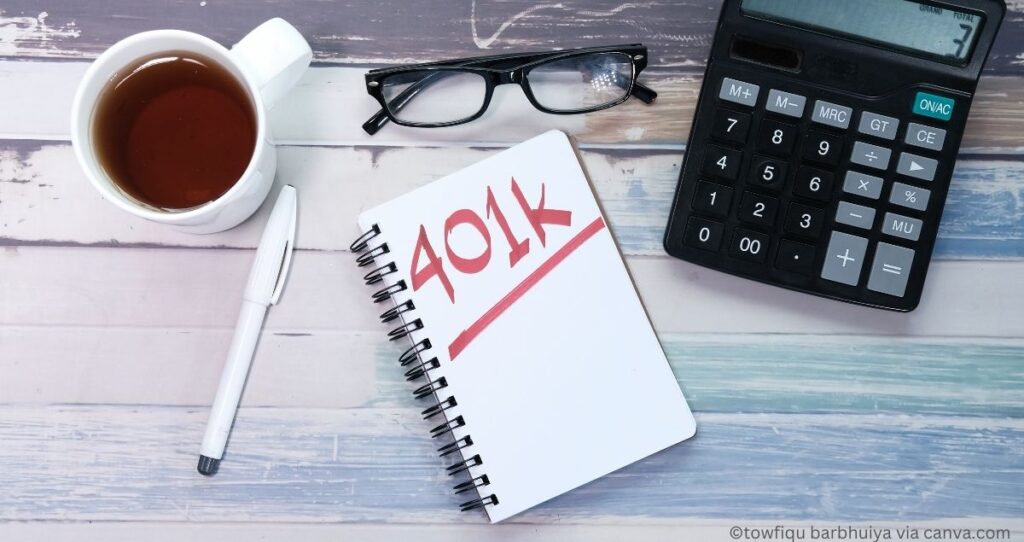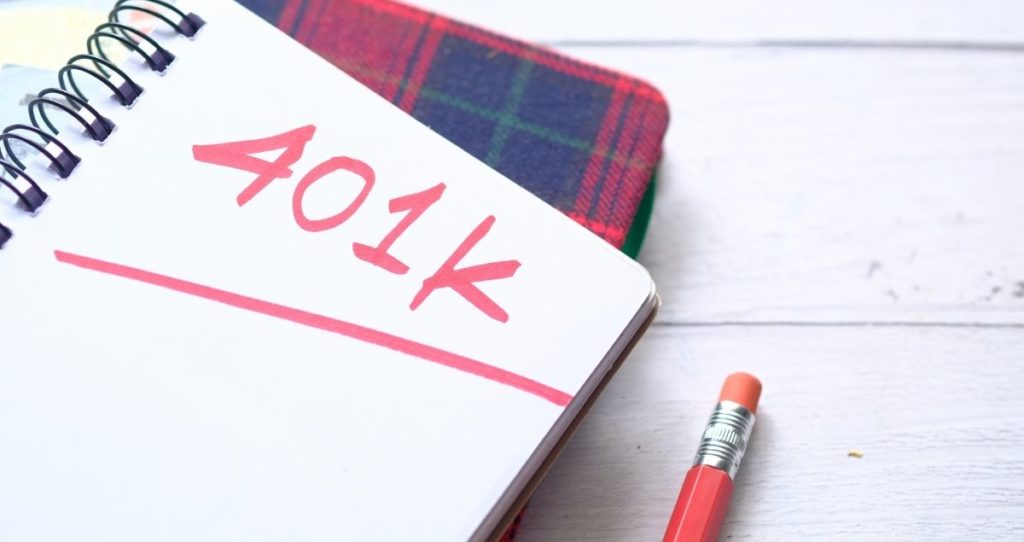Retirement requires a financial plan that will guarantee to cover all your financial needs for as long as you live. You probably heard people talking about running out of money during retirement and why you should save money to prepare for retirement. The truth is that retirement is the scariest time for millions of people out there. Retirement planning gets scary not because people don’t make enough money. Rather, it is because people don’t know what to do before or how to prepare for retirement. That is why a retirement checklist is essential to help you prepare for retirement.
The lack of a retirement plan and proper guidance makes retirement planning a complex process and scary to some people. But, with a retirement checklist, you will ensure that you have saved enough money, created a retirement budget, know where you will live, etc., preventing you from outliving your savings.
If you are nearing your retirement date or planning for retirement, I have compiled a checklist you should follow for a comfortable retirement.
Without further ado, let’s get started.
1. Have enough money saved for retirement
Having enough money for retirement is the first item on your retirement checklist, as your savings determine if you have enough money to live off during retirement. While you can work during your retirement, it is always a good idea to save enough money in case you cannot work. Once you reach old age, your health, as well as your mental and physical abilities, will deteriorate. For this reason, there is no guarantee that you can work during your retirement. This is why saving enough money for retirement is one of the most important things to do before you retire.
If you can’t work and do not have enough money saved for retirement, you will face the greatest fear: Outliving your money. You can avoid this problem by saving enough money before you retire.
How much do you need to save for retirement?
Saving for retirement can be tricky as there is no single amount everyone should save. The key to retirement savings is saving enough to avoid outliving your savings. How much retirement savings is enough? To determine how much you need before you retire, you must know your predicted retirement income, lifestyle, and life expectancy. These three variables help you determine an estimated retirement savings before you retire.
To calculate how much you need to save for retirement, let’s start with your expenses and how many years you are expected to live. The majority of people do not live more than 30 years after retirement. So, let’s assume that your monthly expenses will be $5,000 and you will live up to 90.
The basic retirement saving formula
Assuming that your expenses will be $5,000/mo and you will live 30 years after retirement, you will need to save at least $1,800,000 ($5,000/month for 30 years) for your retirement. Once you hit that retirement amount and decide to retire without additional income, your monthly withdrawal should not exceed $5,000/month.
This technique is tricky and risky. You are saving this way, expecting that life will go as planned. Things can turn ugly, and you could find yourself facing costly expenses. That is why you need to tweak your retirement savings formula slightly.
A passive income-based retirement saving strategy is the best way to estimate your savings.
Instead of a savings-based formula, focus on passive income from your retirement portfolio. Many experts suggest using the 4% retirement rule. This rule helps people save for retirement, assuming that their yearly withdrawal should be 4% and the return on investment should be at least 5%.
Back to that 1.8 million dollars. In the previous example, we assumed that the money was sitting in a savings account and that nothing else was coming in.
Now, we will change things around and put that money into different investments with an ROI of at least 5%. Using this retirement saving strategy, your portfolio will be safe, and all your expenses will be covered by passive income from investments (assuming you will withdraw no more than 4%). This means you will live off passive income from your portfolio without touching the principal. That is how you avoid running out of money during retirement.
Related articles:
- How much do I need to retire: Retirement saving strategies
- 10 effective ways to boost retirement savings
2. Set up a retirement budget
Having a retirement budget is the second most important thing to do before you retire. Being in retirement means that the days of extravagant spending are over. You cannot spend like a 30-year-old when your income is limited and your health expenses are on the roof. Unless you have made a ton of money through businesses or investments, a retirement budget is critical to your retirement checklist.
The retirement budget will guide you on how much you can withdraw from your retirement portfolio every month and how to properly spend it without exceeding the limit. Overspending in retirement can automatically put you in a financial crisis.
You might also like:
- 9 things you must do before you create a personal budget
- What is budgeting, and how does it work?
- 6 benefits of budgeting your money
- 8 clever ways to live on a tight budget
3. Create an emergency fund
One of the most important things to do before you retire is to have an emergency fund. Although you have saved some money for retirement, you should also establish an emergency fund. This fund differs from your retirement savings and should only be used during emergencies such as unexpected accidents, costly medical bills, etc.
You must put this money in a different account, such as a high-yield savings account(HYSA). Additionally, your emergency funds should not be touched, used, or planned for unless you are in an emergency. You must save between 3 to 6 months of your monthly expenses in your emergency fund.
Related post: Should you invest your emergency fund for better returns?
4. Know how much you have saved in your HSA
Another important thing to do before you retire is to know how much you have saved in your Health Savings Account(HSA). Your HSA funds are tax deductible and must be spent on qualifying medical expenses to avoid a 20% penalty. Since medical expenses increase during retirement, saving enough money in the accounts is essential to help cover health-related expenses. Even if this is not the most significant factor on your retirement checklist, every dollar you save helps lower your medical bill.
I recommend saving enough in your HSA, as it comes with tax incentives and can grow without tax. For 2024, you can save up to $4,150 for a single or $8,300 for a family. Another benefit of having an HSA is that after turning 65, your HSA funds can be used for any expense without paying a penalty.
Related: 7 benefits of HSA: Health savings account benefits you need to know
5. Review your health insurance options
Another important thing to do before you retire is to review your health insurance options. Being in retirement also means that you lose your health coverage through your employer. You must look into the government’s different health coverage options, such as Medicare, or explore other private options. Either way, your insurance options should be on your retirement checklist, as they will impact the extent of coverage you get and how much it will cost you.
Another reason to know your health insurance options and how much they will cost you is that they will help you establish a retirement budget that works without exhausting your limited financial resources.
6. Understand all your assets and liabilities
Another item you should not forget on your retirement checklist is understanding all your assets and liabilities. This might sound less pressing, but it is one of many things people get wrong when they are about to retire. The best way to retire is to accumulate many assets that bring in passive income and have $0 in liabilities when possible.
Unfortunately, this is not the case for millions of people out there. Some people even retire with student loans on their shoulders on top of mortgages and car loans. According to CNBC, 46% of all Americans expected to retire with debt in 2021. This high percentage means the chances of you retiring with debt is almost 50%. Unless you take action, things can get tough for you in your retirement due to debt.
This is why paying off your debts should be highlighted on your retirement checklist, and you must do so before you retire. If you cannot pay off your debts, at least know exactly what they are and how they will affect your expenses and retirement lifestyle.
This information will allow you to make informed retirement decisions and adjust your retirement lifestyle to accommodate your debts and pay off all your liabilities. For example, you can retire from a full-time job and get a part-time job just to cover your remaining mortgage payments.
Related article: How to pay off your mortgage faster?
During your retirement, you will also have a chance to start tapping into your social security benefits. These benefits will support you on top of your retirement savings. You should include these benefits on your retirement checklist as they help you cover expenses during retirement.
According to the Social Security Administration, you can take your Social Security money as early as 62. Taking Social Security benefits this early, however, will lead to a reduced percentage of benefits.
That is why it is recommended that you delay tapping into your Social Security benefits until you have officially retired. Wait until you have turned 70 to maximize your benefits and get a higher percentage.
8. Know where you will live during retirement
Earlier, I mentioned that one of the things to do before you retire is to know your expenses. This is very important when calculating how much you will need to save for retirement. Your living expenses will directly affect your monthly costs and your lifestyle.
For example, if you are a traveling nurse, you should have a rough idea of where you will live during retirement since you might no longer travel. Find a place to help you fulfill your retirement dreams and meet your desired living standard.
The place you settle during retirement will directly affect your monthly expenses. So, make sure that you select a place that is not too expensive so that you will not need to stretch your retirement budget or keep working until you die.
9. Decide what to do with your retirement accounts
Before you retire, you should know how you want to manage your retirement accounts. For example, if you have a 401(k) plan with your employer, you will no longer make extra contributions to the plan after you have retired. In this case, you can either leave the account with your former employer, roll over the account into an IRA, or have it rolled into a new 401(k) plan in case you end up having a part-time job with benefits.
You can also cash out, but this is not good financial advice as it automatically prevents your money from growing, and you pay income tax on the entire fund. Cashing out your funds at once can put you into a higher tax bracket for that year, leading to paying the highest tax on your funds. So, you don’t want this option.
10. Have a written will
Another important thing to do before you retire is to have a written will. Many people think that drafting a will is a waste of time. Others wait for too long and die without writing one. The truth is that writing a will is not a waste of time, and it is an essential step in your financial planning strategies.
A will is a legal document that shows how assets should be distributed after death. It clearly shows what each descendant will get and how much. Since the will represents the official wishes of the person who made it, all assets are divided based on what it (the will) says.
Without a will, it becomes difficult to divide assets among descendants. Legal action is usually taken to ensure that no one is taking more than they should without a will. Since a will protects your loved ones from family-related conflicts, having a will should be on your retirement checklist, and you should write one before you retire. Even if it is a draft, you can always edit it over time based on changes in your life and your wishes.
11. Work with a financial advisor
Retirement planning can sometimes be a complex problem for many people. There is a lot of work to do and many decisions to make.
While you can do it yourself, there are chances that you will miss something important or simply make a mistake, which could cost you a lot of fortune when you need money the most. Work with a financial advisor or a retirement planner to avoid anything that can jeopardize your retirement savings.
An advisor/retirement planner will guide you through the whole retirement process and ensure you do not leave anything to chance. At the same time, the advisor will prevent you from making mistakes and help you minimize risks while maximizing your retirement income.
Related posts: Choose a financial advisor in 9 Steps
12. Create extra sources of income
The last item on your retirement checklist is creating new sources of income. Again, your goal during retirement is to avoid outliving your savings or having to work another full-time/part-time job to supplement your income. The only way to achieve this goal is to have extra sources of income that are not tied to your retirement savings or have a lot of money saved with a higher return on investment(ROI).
The future is uncertain, making saving for retirement less accurate. You can only hope that what you have saved is enough to cover all your expenses. Most people make preparations based on the most common and predictable events. For example, you can assume you will live around 30 years after retirement, spend $5,000 per month, and save money based on that assumption.
What if you live for 40 years or more after retiring? If you rely only on savings, you could outlive them. A good trick to avoid this issue is to generate enough passive income from your savings or create an extra source of income that is not tied to your retirement savings.
You don’t necessarily have to show up to work daily. Your income could be a passive income from stocks or rental income from a rental property. This extra money can help you reduce monthly withdrawals from your retirement savings and keep your money growing. You should also invest money in your retirement accounts to keep it growing. The more money you can make without working for it, the better.








